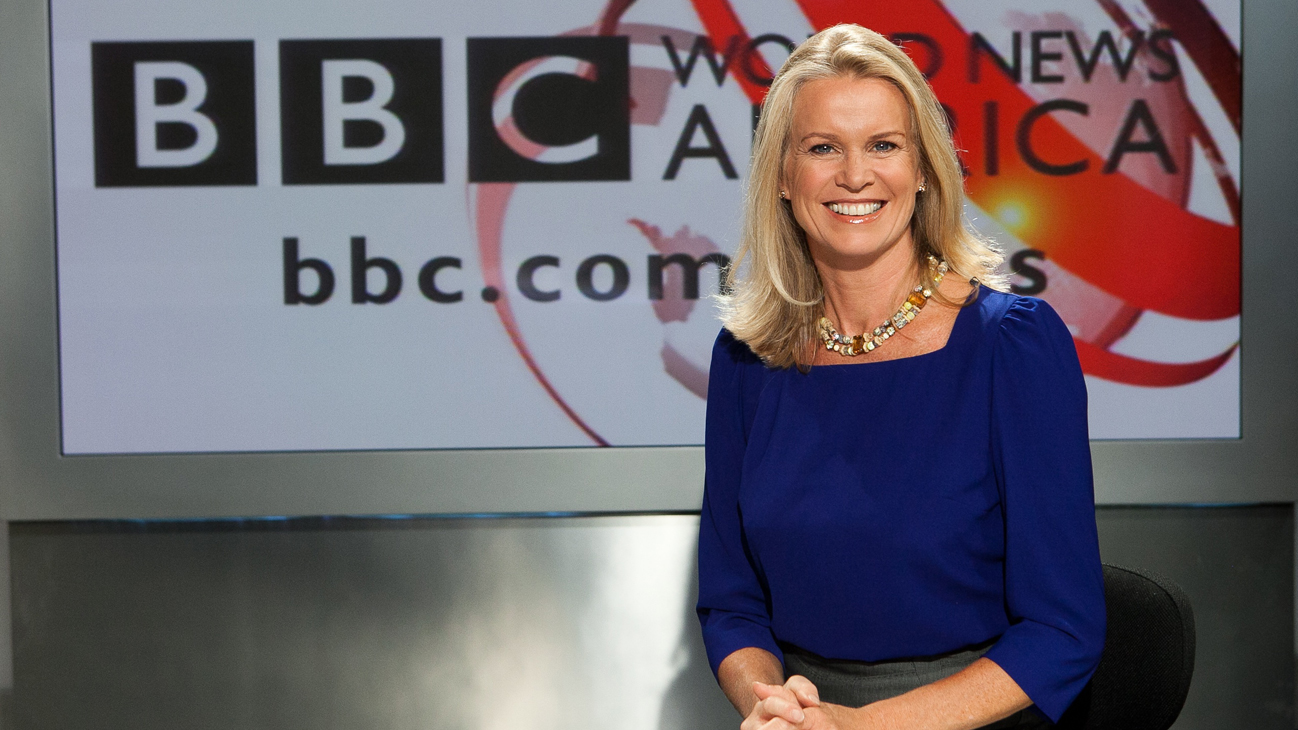Katty Kay is the lead anchor for BBC’s World News America where she covers the full gamut of American and global affairs―reporting on US elections, the White House, Congress, Wall Street, global economies, and world trouble spots. She also frequently acts as a co-host on MSNBC’s Morning Joe and as a guest commentator on NBC’s Meet the Press. Her new book, The Confidence Code: The Science and Art of Self-Assurance–What Women Should Know, written with co-author Claire Shipman, has recently been released. Katty spoke with Michelle McQuaid in The Huffington Post, about the book:
Just how confident do you feel when it comes to your work? Chances are not very, with studies finding 50 percent of women report feelings of self-doubt about their performance and careers and it’s costing us dearly.
“Confidence is what turns our thoughts into actions,” explained Katty Kay, co-author of the best-selling book The Confidence Code.
Confidence isn’t simply feeling good about yourself or saying you’re great — perfect just as you are — and believing you can do whatever you want. Nor does it require you to be a jerk who has to always speak first, ignores other people’s ideas or demands you be given what you deserve.
Rather, confidence is what allows you to start acting and risking and failing, to stop mumbling and apologizing and hesitating. With it you can take on the world; without it you remain stuck on the starting block of your own potential.
Confidence is what allows our male colleagues to willingly risk their careers on new challenges, confidently ask for more money and gamely put themselves forward for promotions even when they’re not quite ready.
The lack of confidence is also the reason women ask four times less frequently for pay rises, negotiate salaries of 30 percent less and won’t put themselves forward for promotions unless they meet 100 percent of the qualifications necessary for the job.
“It turns out confidence matters more to our success than competence does,” said Kay. “If you choose not to act, you have less chance of success.”
Unfortunately, the gender confidence gap is a chasm, found stretching across professions, income levels and generations, showing up in many guises and in places where you least expect it. And while our genetics, our schooling, our upbringing, our society and even the way we look are all factors that affect our confidence, it’s also a result of our own choices.
As a result, Kay believes women can improve their level of confidence through three simple steps:
- Take action: Nothing builds confidence like taking action, especially when the action involves risk and failure. So step outside your comfort zone and if the very idea feels overwhelming, focus on how your actions can benefit others to kick-start your confidence. Start with small challenges that allow you to grow, improve and gain confidence. If you fail, think about how you can do it differently next time and try again. If you succeed, set yourself the next challenge and keep stretching yourself forward again and again.
- Think Less: Unfortunately, our brain is not often our friend when it comes to confidence. We think too much about the tiniest mistakes we’ve made and cling on to criticism for far too long. Ruminating drains the confidence from us, so its important to rewire this thinking pattern by knowing when it’s time to draw a red-line under negative thoughts and move on. Start by noting down in a journal the thoughts you find yourself playing over and over that undermine your confidence. As you look at these thoughts, ask yourself: Is this the only explanation for what’s unfolding? Try to note down as many plausible alternatives as possible and notice how they make you feel. Then invest your attention on the explanations that build, rather than destroy your confidence. And if all fails try a little self-compassion and talk back to yourself like you would a friend who was full of self-doubt.
- Be Authentic: Be confident in a way that feels genuine to you. You don’t always have to speak first; you can listen and incorporate what others say, and perhaps even rely on colleagues to help make your point. You can pass credit around, and you can avoid alienating potential enemies. You can speak calmly but carry a smart message. One that will be heard. Play to your distinctive strengths and values. Express your vulnerability. We’re at our most powerful when confidence emanates from our core.

